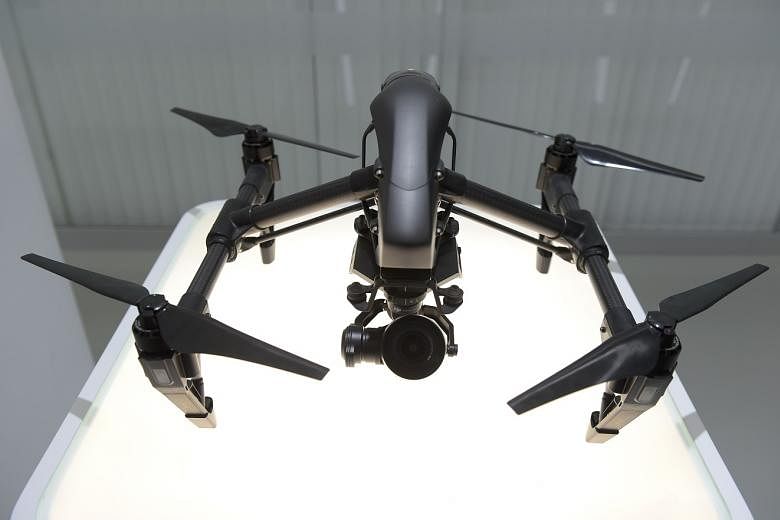SHENZHEN (China) • Drone maker DJI is betting on flying machines that shoot pesticide instead of photos to fend off growing competition in the global market for remote-controlled aircraft.
The world leader in the civilian drones sector is switching its focus from leisure photography to more professional uses for its unmanned aerial vehicles - and it sees agriculture as the future for the industry.
DJI's campus lies in a high-tech park in the southern city of Shenzhen, China's Silicon Valley, where its showroom features a wide array of drones. Half the space is dedicated to recreational machines such as those in the Phantom series; the other half shows off "enterprise" drones for agriculture, public safety or professional photography.
Propelled by rotors, the tiny crop-dusting aircraft can carry a liquid payload of 15kg to spray fields.
"Within five years, we went from drones that only took photos to machines specialised in first aid or agriculture," DJI vice-president Paul Xu told Agence France-Presse.
DJI was founded in 2006 by Mr Frank Wang, then a young graduate with a passion for model planes.
It now makes almost two-thirds of the world's civilian drones, according to estimates by market research company Frost & Sullivan.
Overall revenues reached US$1.5 billion (S$2 billion) last year.
Mr Xu boasted that DJI "created a new market" in 2013 when it launched its Phantom drone with high-definition cameras.
Some 75 per cent of its drones are sold abroad, mostly in the US and Europe. They are popular with people who fly them for fun or to take aerial photos. A drone that landed on the lawn of the White House in 2015 was a DJI Phantom.
The US authorities issued new rules last year that clear the way for small, commercial drones to operate across American airspace, while EU regulators are trying to catch up. With competition rising, DJI is seeking new markets. In 2015, it launched Agras MG-1, an octocopter, or eight-rotor drone, which can carry pesticides or fertilisers.
"A drone can monitor energy networks in hard-to-reach areas," said Mr Xu.
Worldwide drone sales soared by 60 per cent last year, according to the Gartner consulting company. Sales are expected to reach US$6 billion this year and nearly double to US$11.2 billion by 2020.
AGENCE FRANCE-PRESSE

